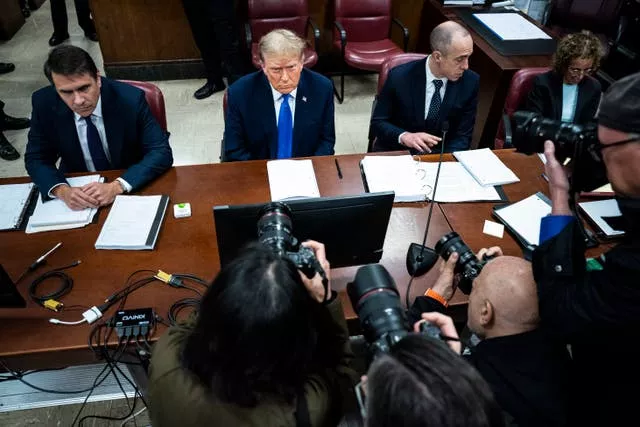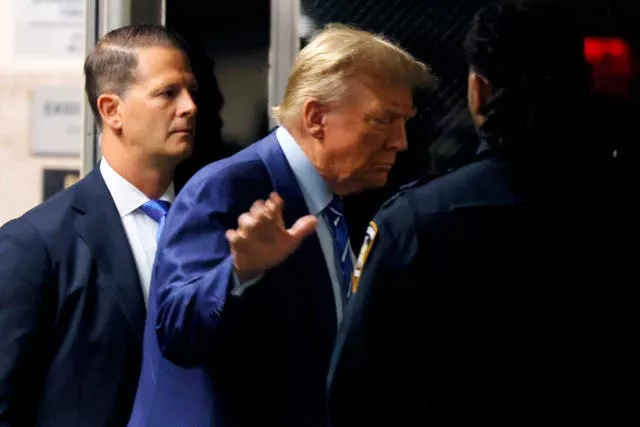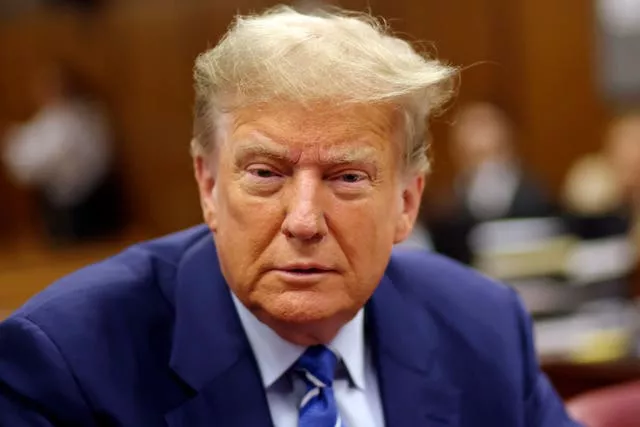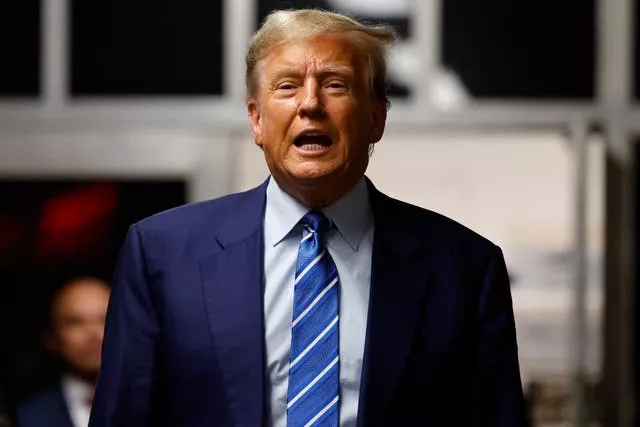Two jurors have been dismissed in Donald Trump’s hush money trial.
One was excused after expressing doubt about her ability to be fair and impartial. The other was dismissed after prosecutors raised questions about the accuracy of his answers during the selection process.
The dismissals reduced to five the number of jurors.

Lawyers have been grilling hundreds of potential jurors for hours, asking questions on everything from their hobbies and their social media posts to their opinion of the presumptive Republican nominee in this year’s closely contested presidential race.
More than half the members of a second group of 96 prospective jurors brought into the courtroom were dismissed on Thursday, most after saying they doubted their ability to be fair and impartial.
The first juror to be excused, an oncology nurse selected on Wednesday, told the court she had become concerned about her ability to be impartial.
Judge Juan Merchan said that the woman, a nurse, “conveyed that after sleeping on it overnight she had concerns about her ability to be fair and impartial in this case”. And though jurors’ names are being kept confidential, the woman said her family members and friends questioned her about being a juror.

A second seated juror was dismissed after prosecutors raised concerns that may not have been honest in answering a jury selection question by saying that he had never been accused or convicted of a crime.
The IT professional was summoned to court to answer questions after prosecutors said they found an article about a person with the same name who had been arrested in the 1990s for tearing down political posters pertaining to the political right in suburban Westchester County.
A prosecutor had also disclosed that a relative of the man may have been involved in a deferred prosecution agreement in the 1990s with the Manhattan district attorney’s office, which is prosecuting Mr Trump’s case.
Because the juror was questioned at the judge’s bench, off-microphone and out of earshot of reporters, it was not known whether the man confirmed or denied if either instance was connected to him.

Twelve jurors and six alternates must be seated to hear the trial. Mr Merchan said on Tuesday that opening statements could begin as soon as Monday.
The setbacks in the selection process emerged during a frenetic morning in which prosecutors also asked for Mr Trump to be held in contempt over a series of social media posts this week, while the judge in the case barred reporters from identifying jurors’ employers after expressing privacy concerns.
The district attorney’s office on Monday sought a $3,000 fine for Mr Trump for three Truth Social posts they said violated a gag order. Since then, though, prosecutors say he’s made seven additional posts that they believe also violate the order.
Several of the posts involved an article that referred to Mr Trump’s former lawyer Michael Cohen as a “serial perjurer”, and one from Wednesday that repeated a claim by a Fox News host that liberal activists were lying to get on the jury, said prosecutor Christopher Conroy.
Mr Trump’s lawyer Emil Bove said Mr Cohen “has been attacking President Trump in public statements”, and Mr Trump was just replying.
The judge had already scheduled a hearing for next week on the prosecution’s request for contempt sanctions over Mr Trump’s posts.
The trial centres on a payment that Mr Trump’s lawyer and personal fixer, Mr Cohen, made shortly before the 2016 election to pornography actor Stormy Daniels, to prevent her claims of a sexual encounter with Mr Trump from becoming public in the race’s final days.
Prosecutors say Mr Trump obscured the true nature of the payments in internal records when his company reimbursed Mr Cohen, who pleaded guilty to federal charges in 2018 and is expected to be a star witness for the prosecution.
Mr Trump has denied having a sexual encounter with Ms Daniels, and his lawyers argue that the payments to Mr Cohen were legitimate legal expenses.
Mr Trump faces 34 felony counts of falsifying business records. He could get up to four years in prison if convicted, though it is not clear that the judge would opt to put him behind bars.
Mr Trump would almost certainly appeal any conviction.
The hush money case is one of four criminal prosecutions involving Mr Trump as he vies to reclaim the White House, but it is possible that it will be the sole case to reach trial before November’s presidential election.
Appeals and other legal wrangling have caused delays in cases charging Mr Trump with plotting to overturn the 2020 election results and with illegally hoarding classified documents.
Discover more from London Glossy Post
Subscribe to get the latest posts sent to your email.


